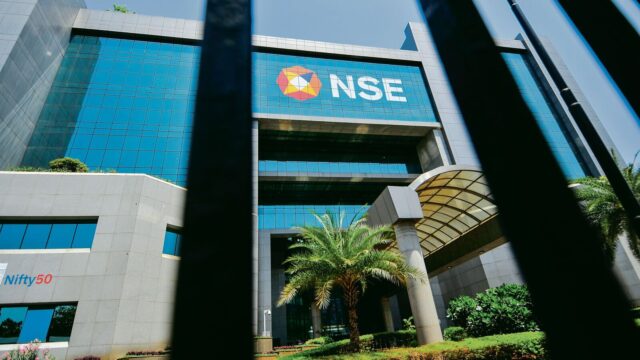MUMBAI :Mumbai: More than five years after it launched bullion futures for trading, the National Stock Exchange (NSE) in January 2024 surpassed farm derivatives exchange NCDEX to become India’s second-largest commodity derivatives platform. The No.1, MCX, is still a fair bit ahead of both.
Mumbai: More than five years after it launched bullion futures for trading, the National Stock Exchange (NSE) in January 2024 surpassed farm derivatives exchange NCDEX to become India’s second-largest commodity derivatives platform. The No.1, MCX, is still a fair bit ahead of both.
NSE, the country’s biggest stock exchange by traded volume and value, clocked commodity derivates volumes of ₹38,418 crore in January against the NCDEX’s ₹12,509 crore, show data from the Securities and Exchange Board of India. This is the first time that NSE has overtaken the 2003-founded NCDEX by volumes.
Hi! You’re reading a premium article
NSE, the country’s biggest stock exchange by traded volume and value, clocked commodity derivates volumes of ₹38,418 crore in January against the NCDEX’s ₹12,509 crore, show data from the Securities and Exchange Board of India. This is the first time that NSE has overtaken the 2003-founded NCDEX by volumes.
About ₹38,387 crore, or 99.99%, of NSE’s turnover in January came from options on crude oil futures contracts.
On an annual basis, though, NCDEX is still a whiff ahead of NSE. The traded value of NSE in the commodity derivatives segment (CDS) in the current fiscal (till 26 February) stands at ₹1.19 trillion, up almost seven times from just ₹17,755 crore in FY23. NCDEX’s turnover in the same period stands at ₹1.93 trillion, down almost 7% from ₹2.07 trillion in FY23.
To be sure, both the exchanges’ CDS turnover in January pales compared to that of market leader MCX, which in January posted ₹30.28 trillion turnover, giving it a market share of 98.3%. Against this, the market share of NSE was 1.2% during the month, and of NCDEX, 0.4%. BSE’s market share was close to zero in January. For the current fiscal year, MCX’s turnover stands at ₹246.65 trillion, up 67% from the previous fiscal.
However, despite being a “distant second”, any traction gained by NSE offers a “credible alternative” to market participants in the event of an “unforeseen exigency”, said Gnanasekar Thiagarajan, director of commodity research firm Commtrendz.
He cited a technical glitch at MCX on 13 February, which halted trading for four hours, raising anxiety levels for market participants who had overnight positions on gold, crude, etc. MCX had migrated to TCS’s technology platform from that of its former founder 63 moons in October last year. “Although the outage didn’t balloon into a crisis, a credible alternative is always desirable,” said Thiagarajan.
Naveen Mathur, director-commodity and currency, Anand Rathi Share & Stock Brokers, agreed, saying that his clients were actively trading on NSE’s crude oil options launched last October.
“NSE volumes have picked up because of crude oil options on futures it launched last year, which mirror the relevant Nymex contracts. NSE’s commodity segment can become more liquid as clients trading on equity can use their collateral or margins to trade in commodities after 3:30 pm,” said Mathur.
Equity markets run from 9:15 am to 3:30 pm while commodity derivatives run from 9 am to 11:30 pm. Non- agri commodities trading becomes active after 5 pm, coinciding with the open of European and, later, the US markets. Margins used by equity traders can, thus, be put to use in commodities after the closure of the equity markets.
“If there are no more tech glitches on MCX, NSE will face a formidable challenge in upstaging MCX, but if the software plays up again, it can find a foot in the door,” said Alok Churiwala, MD, Churiwala Securities. “NSE can also leverage its advantage of having multiple segments as clients could deploy collateral for commodity segment after closure of equity sessions.”
Interestingly, NSE owns a 15% stake in NCDEX, whose volumes have crashed over the years because of the central government’s ban on trading in items like paddy, gram, mustard seed, soyabean, crude palm oil and moong to rein in food price inflation. This has caused NCDEX volumes to more than halve from ₹4.57 trillion in FY22 to ₹2.07 trillion in FY23.
Sebi categorizes all bourses as stock exchanges, which can offer segments such as equity, commodity, currency and debt instruments for trading.




